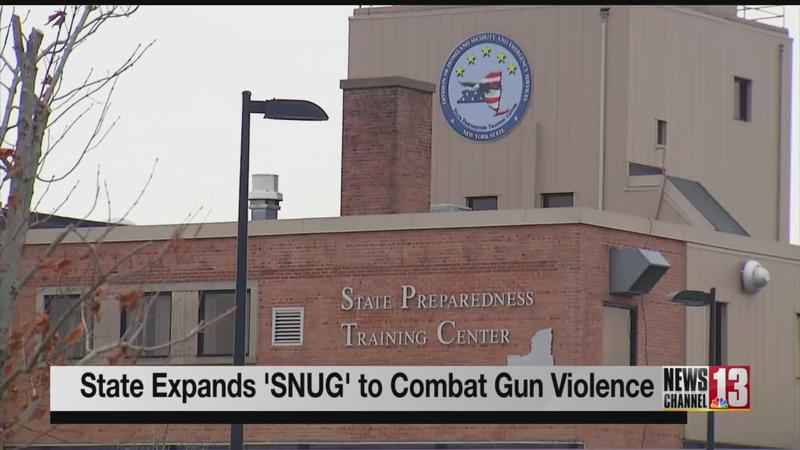State expands gun violence oureach program in Albany and Troy
Gov. Kathy Hochul on Wednesday announced the latest strategy to reduce gun violence and introduced new outreach efforts. The state is expanding the SNUG gun violence outreach program as part of an $8.2 million investment in street outreach.
The governor delivered virtual remarks at a training session for the new employees Wednesday.
SNUG is already working to reach out to the community in Albany to reduce gun violence. The state is hiring an additional 29 staff members statewide, some of whom will be working in Albany and Troy.
Staff work on the ground in the community to mediate conflicts, help guide kids and teens, and provide counseling and a safe place for people affected by gun violence.
The new workers get to practice inside the state’s Preparedness Training Center in Oneida County, usually used for SWAT teams. This week, the staff will have a chance to role-play responding to violence on a fully constructed city block.
Some of the staff are people who turned to gun violence in the community where they now work, but have since turned their lives around.

"We send these individuals back into the same neighborhoods that they may have tried to get away from. Now they are going back with a bigger purpose. Here you have an individual who once was a terror in the street, and now they are in the street helping and mentoring the youth and taking them down a path they once lived, so they get over the hurdles they once got over," explained Statewide Training Director Jerome Brown.
The governor is betting on SNUG to make a real difference in gun violence. Her proposed budget includes triple the amount of money for gun violence resources. Hochul is looking to expand SNUG to 12 to 15 new communities, including Schenectady.
"We are taking this issue seriously. When I talk about all of these other programs, I in my heart believe what is going to work the most, most successfully, is the work you’re going to do. The training, the connections you’re going to be making, the relationships you’re building, the network of support that you’ll have from being part of this program, you’re going out there where people need you," Hochul said.